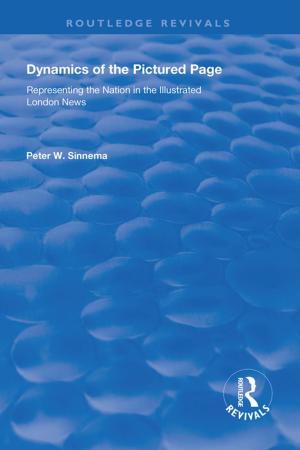Japan And Asian Modernities
Nonfiction, Social & Cultural Studies, Social Science, Cultural Studies, Ethnic Studies, Anthropology| Author: | Raud | ISBN: | 9781136214776 |
| Publisher: | Taylor and Francis | Publication: | November 12, 2012 |
| Imprint: | Routledge | Language: | English |
| Author: | Raud |
| ISBN: | 9781136214776 |
| Publisher: | Taylor and Francis |
| Publication: | November 12, 2012 |
| Imprint: | Routledge |
| Language: | English |
The effect of Japan on the challenges and complexities of the modernisation process that globalisation has brought to the fore in Asia are the subject of this interdisciplinary volume by leading scholars in the field. Using fascinating examples drawn from current business and organisational practice in Asia, it focuses on the impact that Japanese modernity has made in Asia as a model to be imitated because of its apparent success in adopting western technologies while retaining its own cultural identity. At the same time, Japan itself is a dominant force in modernity in East and South East Asia, exporting its own type of modernisation, management and business practices, and models of 'traditional' social relations which do not necessarily correspond to the traditions of other Asian cultures.This adds another element to the conventional model of modernity as a dialogue between West and East; without considering Japan's special significance in the region, any critical assessment of the modernising process in Asia would not be possible. This emphasis is the special contribution of this innovative work which aims to show the extent to which the experiences of one non-Western modernity can influence others; to highlight the problems of cultural identity that must be faced by modernising societies; and, above all aims to contribute to the larger debates on intercultural communication that are vital for achieving genuine understanding between representatives of different cultures, traditions and world views.Besides Asian and Japanese Studies specialists, "Japan and Asian Modernities" is addressed to a larger audience of academics and specialists working in the areas of history of ideas, political science, the sociology and anthropology of business, comparative cultural studies and economics or other disciplines related to contemporary East and South-East Asia where the subject of alternative modernities is relevant.
The effect of Japan on the challenges and complexities of the modernisation process that globalisation has brought to the fore in Asia are the subject of this interdisciplinary volume by leading scholars in the field. Using fascinating examples drawn from current business and organisational practice in Asia, it focuses on the impact that Japanese modernity has made in Asia as a model to be imitated because of its apparent success in adopting western technologies while retaining its own cultural identity. At the same time, Japan itself is a dominant force in modernity in East and South East Asia, exporting its own type of modernisation, management and business practices, and models of 'traditional' social relations which do not necessarily correspond to the traditions of other Asian cultures.This adds another element to the conventional model of modernity as a dialogue between West and East; without considering Japan's special significance in the region, any critical assessment of the modernising process in Asia would not be possible. This emphasis is the special contribution of this innovative work which aims to show the extent to which the experiences of one non-Western modernity can influence others; to highlight the problems of cultural identity that must be faced by modernising societies; and, above all aims to contribute to the larger debates on intercultural communication that are vital for achieving genuine understanding between representatives of different cultures, traditions and world views.Besides Asian and Japanese Studies specialists, "Japan and Asian Modernities" is addressed to a larger audience of academics and specialists working in the areas of history of ideas, political science, the sociology and anthropology of business, comparative cultural studies and economics or other disciplines related to contemporary East and South-East Asia where the subject of alternative modernities is relevant.















